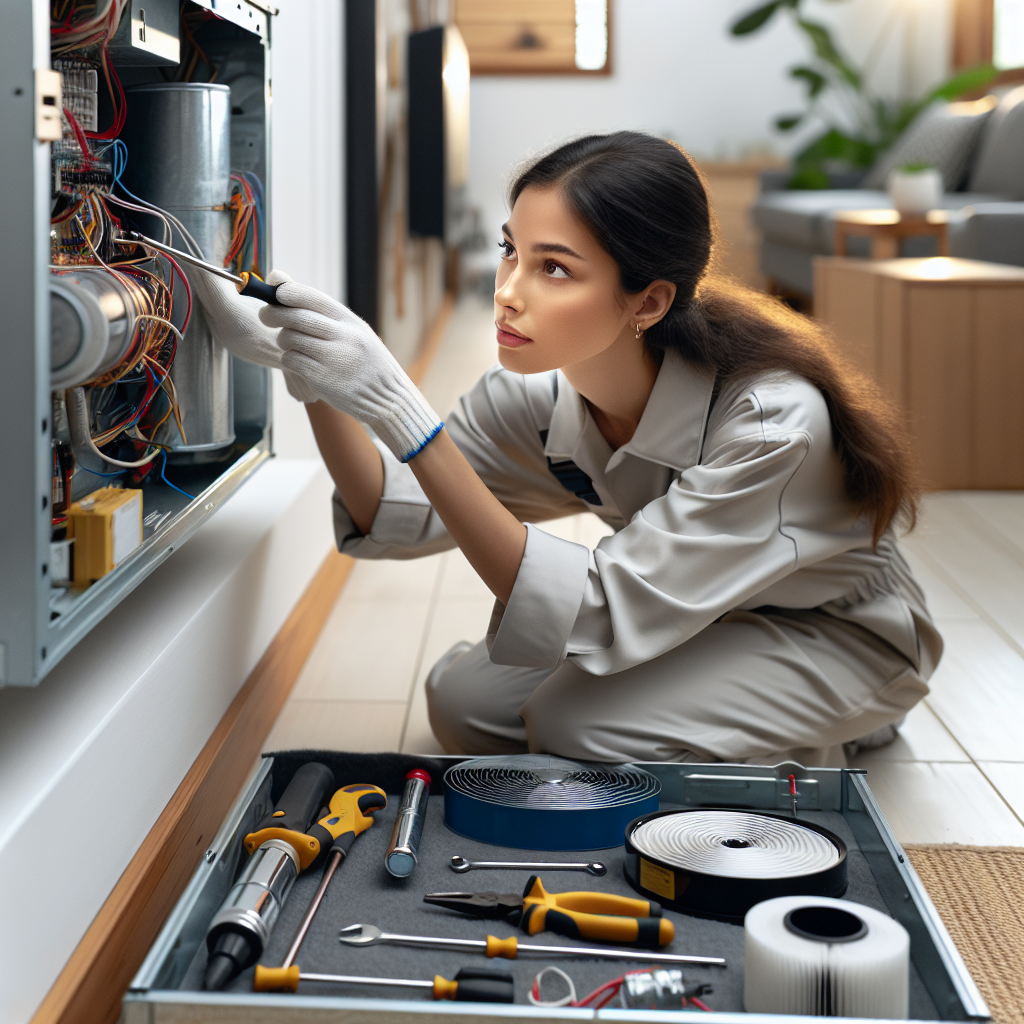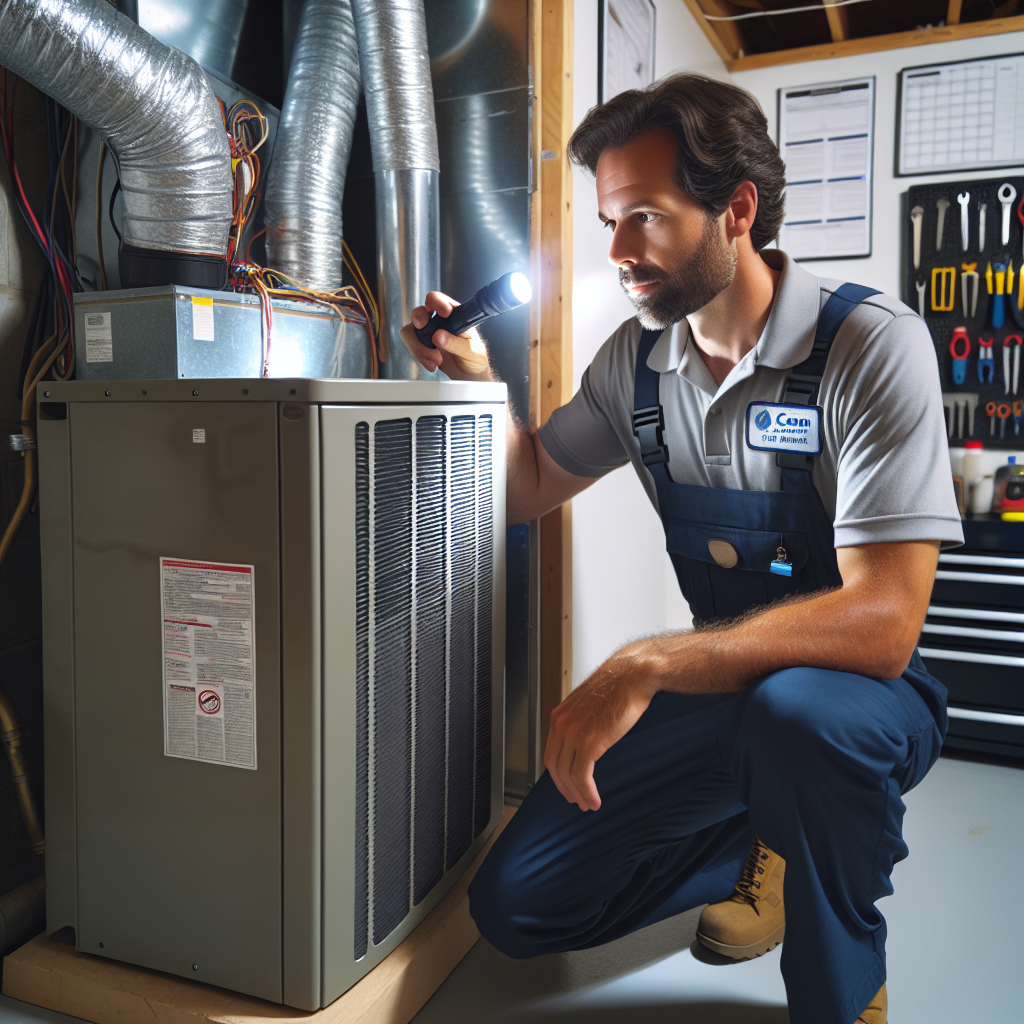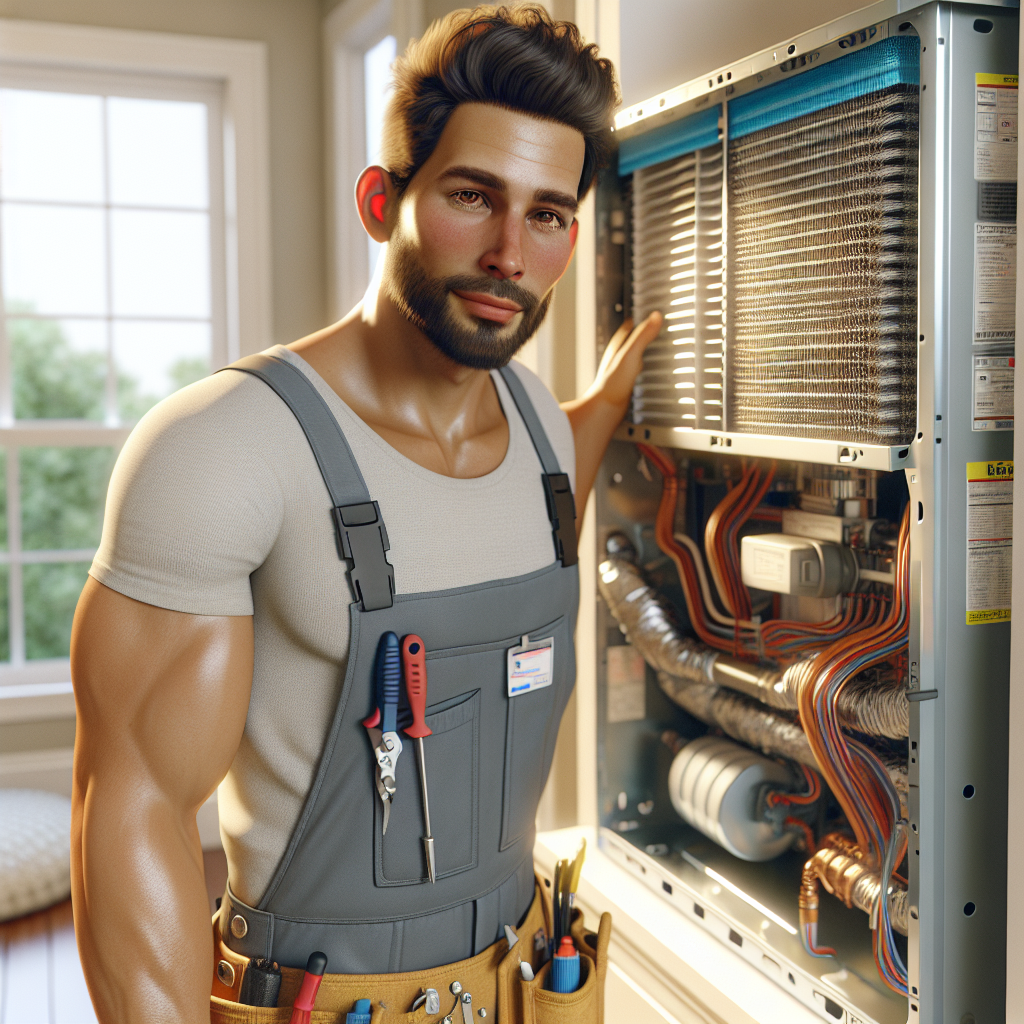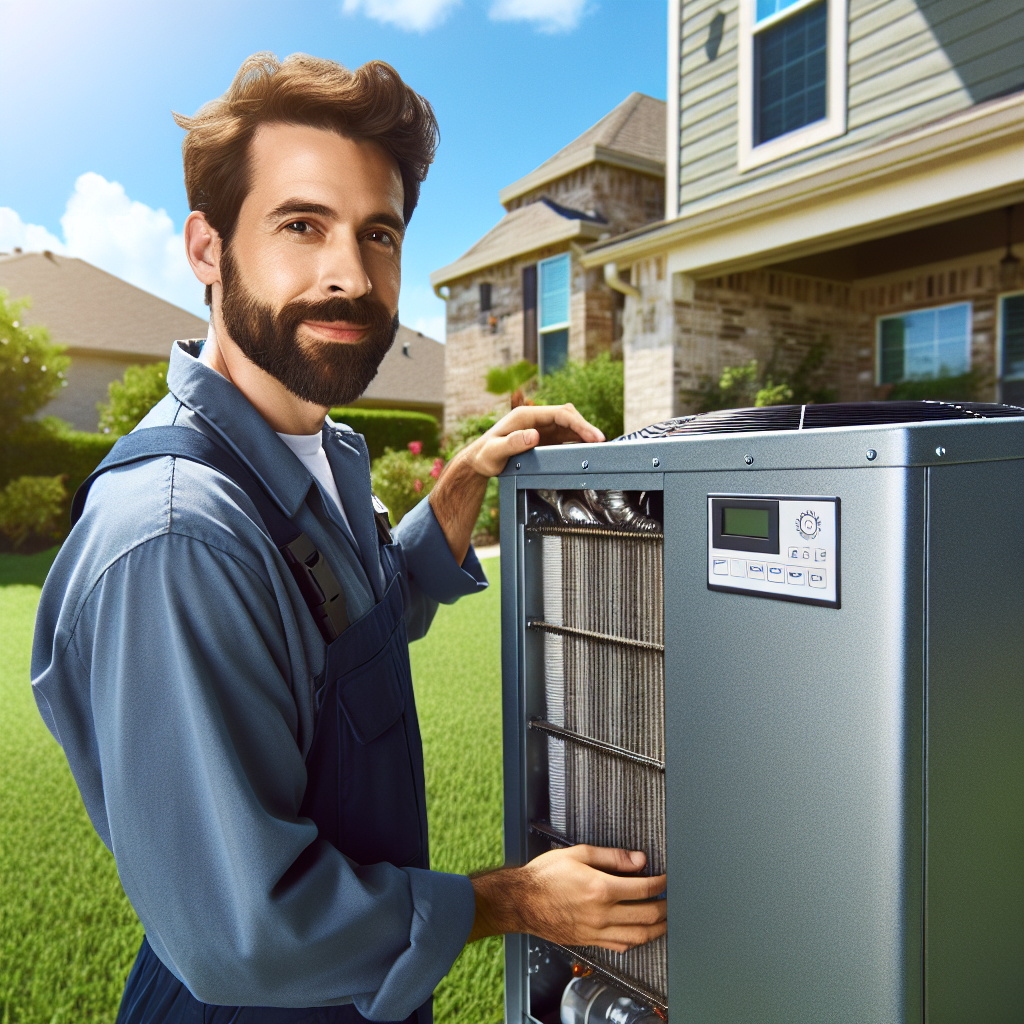
How Long Does HVAC Maintenance Take? Get the Facts!
When it comes to HVAC maintenance, one of the first questions homeowners and business owners often ask is, “How long does HVAC maintenance take?” Understanding the duration of these essential services can help you plan better and ensure your systems are running efficiently. Typically, standard HVAC maintenance can take anywhere from 1 to 3 hours. However, this timeframe can vary based on several factors, including the size of the system, its condition, and whether it’s a residential or commercial setup.
Regular HVAC maintenance is crucial for maintaining the efficiency and longevity of your heating and cooling systems. Neglecting regular check-ups can lead to unexpected breakdowns, higher energy bills, and a shorter lifespan for your equipment. At Harmony Air LLC, we specialize in providing thorough maintenance services that keep your systems running smoothly all year round.
For those who value their time and comfort, knowing how long the maintenance process will take is vital. While the general duration is between 1 to 3 hours, more complex systems and commercial units may require additional time. Our expert technicians at Harmony Air LLC ensure that every aspect is meticulously checked, from filters and coils to electrical connections and thermostats.
Ready to schedule your HVAC maintenance? Call now 772-203-2571 to book an appointment or visit our website at Harmony Air LLC for more information.
Factors Influencing Maintenance Time

Several factors can influence the duration of HVAC maintenance. Understanding these variables can help you better estimate the time required and prepare accordingly:
- System Size and Complexity: Larger systems or those with more complex designs typically take longer to service. Residential units are generally quicker to maintain compared to commercial systems, which may include multiple components and intricate ductwork.
- System Condition: The current state of your HVAC system plays a significant role in how long maintenance will take. Systems that are well-maintained and regularly serviced usually require less time. Conversely, systems that have been neglected or are in poor condition may need more extensive checks and repairs, extending the maintenance duration.
- Type of Maintenance: Routine maintenance, such as filter changes and basic inspections, typically takes less time compared to more comprehensive services like duct cleaning or refrigerant recharging. The specific tasks involved will impact the overall time required.
- Accessibility: The ease with which technicians can access your HVAC system will also affect maintenance time. Systems that are difficult to reach or require disassembly may take longer to service. For example, units located in tight attic spaces or behind walls can add to the time required for maintenance.
- Technician Experience: The skill level and experience of the technician performing the maintenance can significantly impact the time it takes. Experienced technicians are often more efficient and can identify and resolve issues more quickly.
By considering these factors, you can better understand the potential time commitment for your HVAC maintenance and ensure you schedule accordingly. Ensuring that these variables are addressed can help streamline the process and minimize any disruptions to your daily routine.
Standard Time for Residential HVAC Maintenance

For residential properties, the typical duration for HVAC maintenance can vary but usually falls within a standard time frame. On average, homeowners can expect a maintenance visit to take between 1 to 2 hours. This time frame covers most routine checks and tasks, allowing technicians to thoroughly inspect, clean, and service the system.
The maintenance process typically includes:
- Inspection: A comprehensive examination of the system, including checking the thermostat settings, electrical connections, and system controls. This ensures that all components are functioning correctly and safely.
- Cleaning: Cleaning or replacing air filters, removing debris from condensate drains, and cleaning coils to improve system efficiency and indoor air quality.
- Lubrication: Applying lubricant to moving parts to reduce friction and wear, which can extend the lifespan of the components.
- Testing: Running the system to monitor its performance, ensuring it operates efficiently and maintains the desired temperature settings.
While 1 to 2 hours is a general estimate, the exact time required can vary based on factors such as the age and condition of the system, its complexity, and the specific tasks being performed. For instance, older systems or those that haven’t been serviced regularly may require additional time for more detailed inspections and repairs.
Scheduling regular maintenance can help ensure that your HVAC system remains in top condition, reducing the likelihood of unexpected breakdowns and extending its overall lifespan. By investing a small amount of time in routine upkeep, you can enjoy a more reliable and efficient heating and cooling system throughout the year.
Commercial HVAC Maintenance Duration

Commercial HVAC maintenance typically requires more time than residential maintenance due to the complexity and scale of the systems involved. On average, a maintenance visit for a commercial HVAC system can take anywhere from 2 to 8 hours. This extended time frame accounts for the intricate networks of ductwork, larger units, and multiple components that need to be inspected and serviced.
The steps involved in commercial HVAC maintenance are similar to those for residential systems but often on a larger scale. These steps include:
- Thorough Inspection: Examining all system components, from thermostats and controls to electrical connections and refrigerant levels. This ensures that everything is operating safely and efficiently.
- Detailed Cleaning: Cleaning or replacing air filters, clearing condensate drains, and cleaning coils. Given the larger size of commercial systems, this step can be more time-consuming but is crucial for maintaining air quality and system efficiency.
- Component Lubrication: Lubricating all moving parts to prevent wear and tear, which is especially important in systems that run continuously in commercial settings.
- Performance Testing: Running the system to check for optimal performance, ensuring that it can handle the demands of the commercial space, and making adjustments as needed.
The duration can also be influenced by the specific needs of the building, the age and condition of the HVAC system, and any unique requirements for the commercial space. For example, older systems or those that have not been regularly maintained might need more extensive work, which can extend the maintenance time.
Regular maintenance is essential for commercial HVAC systems to ensure they operate efficiently and reliably. Investing time in routine checks and upkeep can prevent costly repairs and downtime, keeping your business environment comfortable and conducive to productivity.
Importance of Regular HVAC Maintenance
Regular HVAC maintenance is crucial for several reasons, ensuring that your system operates efficiently and reliably throughout the year. One of the most significant benefits of regular maintenance is the extension of the system’s lifespan. Just like any other mechanical system, your HVAC unit requires periodic attention to function at its best. Neglecting maintenance can lead to wear and tear, reducing the system’s overall longevity and performance.
Another critical aspect of regular maintenance is improved energy efficiency. Over time, components such as filters, coils, and fans can become dirty or clogged, forcing the system to work harder to maintain the desired temperature. This not only increases energy consumption but also results in higher utility bills. By keeping these components clean and well-maintained, your HVAC system can operate more efficiently, saving you money in the long run.
Regular maintenance also plays a vital role in ensuring indoor air quality. Dust, pollen, and other airborne particles can accumulate in your HVAC system, leading to poor air quality inside your home or business. Routine maintenance includes cleaning or replacing filters and other components, which helps to remove these contaminants and keep the air you breathe clean and healthy.
Additionally, regular HVAC maintenance can help identify potential issues before they become major problems. During a maintenance visit, a technician can spot signs of wear or damage and address them promptly. This proactive approach can prevent unexpected breakdowns and costly repairs, ensuring that your system remains reliable when you need it most.
Finally, maintaining your HVAC system can provide peace of mind. Knowing that your heating and cooling system is in good working order allows you to focus on other important aspects of your life or business, without worrying about unexpected HVAC issues.
Tips to Speed Up HVAC Maintenance

Maximizing the efficiency of your HVAC maintenance can save you both time and money. By following a few simple tips, you can ensure that the maintenance process is smooth and quick, allowing you to enjoy the benefits of a well-functioning system without the hassle of long service times.
First, keep your system’s documentation handy. Having your HVAC unit’s manuals, warranty information, and past maintenance records easily accessible can help the technician diagnose and service your system more efficiently. This can significantly reduce the time spent identifying issues and finding the right solutions.
Next, ensure that the area around your HVAC unit is clear and accessible. Remove any obstacles, such as furniture, plants, or debris, that might obstruct the technician’s access to the unit. This not only speeds up the maintenance process but also ensures that the technician can perform a thorough inspection and cleaning.
Regularly replace or clean your air filters. Dirty filters can impede airflow and reduce the efficiency of your HVAC system. By keeping filters clean, you can prevent unnecessary strain on the system, making it easier and quicker for the technician to perform maintenance tasks. Mark your calendar to replace or clean filters every one to three months, depending on usage and the type of filter.
Another useful tip is to schedule maintenance during the off-peak seasons. Spring and fall are typically less busy times for HVAC technicians, which means you are more likely to get a convenient appointment and quicker service. Additionally, technicians may have more time to thoroughly inspect and service your system during these periods.
Lastly, consider signing up for a maintenance plan with a trusted HVAC contractor like Harmony Air LLC. A maintenance plan ensures regular check-ups and priority service, often at a discounted rate. This not only keeps your system in top condition but also helps to streamline the maintenance process.
By following these tips, you can help speed up your HVAC maintenance and enjoy a more efficient and reliable system. For expert HVAC maintenance and service, call now 772-203-2571 and schedule an appointment with Harmony Air LLC.
